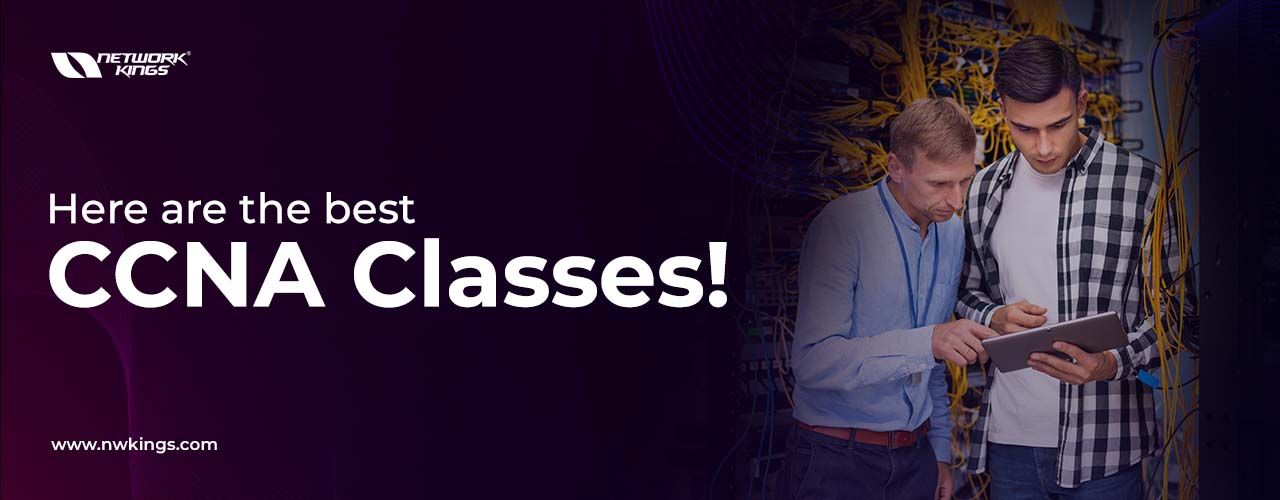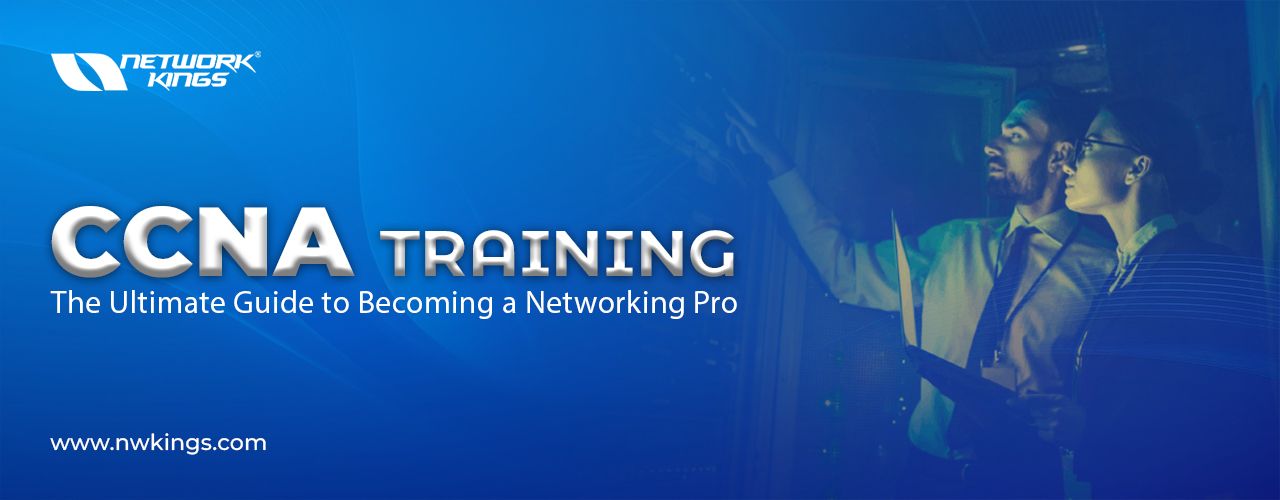
CCNA classes are an essential part of career growth in the IT industry. These classes provide individuals with the knowledge and skills needed to excel in the field of networking. Whether you are a beginner looking to start a career in IT or an experienced professional looking to enhance your skills, CCNA classes can help you achieve your goals.
In this article, we will explore the basics of CCNA certification, the benefits of taking CCNA classes, and how they can help you build a strong foundation in networking.
Understanding the Basics of CCNA Certification and Its Benefits
CCNA certification stands for Cisco Certified Network Associate. It is a globally recognized certification that validates an individual’s knowledge and skills in networking. This certification is offered by Cisco, one of the leading companies in the networking industry. By obtaining a CCNA certification, individuals demonstrate their proficiency in various networking concepts, including network fundamentals, network access, IP connectivity, IP services, security fundamentals, and automation and programmability.
There are several benefits to obtaining a CCNA certification. Firstly, it enhances your credibility and marketability in the IT industry. Employers value individuals who have obtained this certification as it demonstrates their commitment to their profession and their ability to handle complex networking tasks. Secondly, CCNA certification opens up a wide range of career opportunities. With this certification, you can work as a network administrator, network engineer, or systems engineer, or even pursue higher-level certifications such as CCNP (Cisco Certified Network Professional) or CCIE (Cisco Certified Internetwork Expert).
How CCNA Classes Can Help You Build a Strong Foundation in Networking?
Networking is a crucial aspect of the IT industry. It involves the design, implementation, management, and maintenance of computer networks. A strong foundation in networking is essential for anyone looking to pursue a career in IT. CCNA classes can help you build this foundation by providing you with a comprehensive understanding of networking concepts and technologies.
CCNA classes cover a wide range of topics, including network fundamentals, routing and switching, LAN switching technologies, IP addressing and subnetting, routing protocols, network security, and network troubleshooting. These classes not only teach you the theoretical aspects of networking but also provide hands-on experience through practical labs and simulations. By taking CCNA classes, you will learn how to configure and troubleshoot network devices, design and implement secure networks, and optimize network performance.
Exploring the Different CCNA Certification Paths and Their Career Prospects
CCNA certification offers several different paths, each focusing on a specific area of networking. These paths include CCNA Routing and Switching, CCNA Security, CCNA Data Center, CCNA Collaboration, CCNA Wireless, and CCNA Cloud. Each certification path has its own set of prerequisites and career prospects.
CCNA Routing and Switching is the most popular certification path and provides a solid foundation in networking. It covers topics such as IP addressing, routing protocols, LAN switching technologies, network troubleshooting, and network security. With a CCNA Routing and Switching certification, you can work as a network administrator, network engineer, or systems engineer.
CCNA Security focuses on network security and provides individuals with the knowledge and skills needed to secure network devices, implement secure access controls, and detect and mitigate security threats. With a CCNA Security certification, you can work as a network security specialist or a security administrator.
CCNA Data Center focuses on data centre technologies and covers topics such as data centre networking, storage networking, unified computing, virtualization, and automation. With a CCNA Data Center certification, you can work as a data centre administrator or a data centre engineer.
CCNA Collaboration focuses on collaboration technologies such as voice, video, and conferencing solutions. It covers topics such as IP telephony, video conferencing, collaboration endpoints, and Cisco Unified Communications Manager. With a CCNA Collaboration certification, you can work as a collaboration engineer or a voice engineer.
CCNA Wireless focuses on wireless networking technologies and covers topics such as WLAN fundamentals, wireless security, wireless design, and wireless troubleshooting. With a CCNA Wireless certification, you can work as a wireless network engineer or a wireless network administrator.
CCNA Cloud focuses on cloud computing technologies and covers topics such as cloud infrastructure, cloud storage, cloud networking, and cloud security. With a CCNA Cloud certification, you can work as a cloud administrator or a cloud engineer.
What to Expect from CCNA Classes: Course Content and Curriculum?
CCNA classes provide a comprehensive curriculum that covers all the necessary topics and skills needed to pass the CCNA certification exam. The course content is designed to provide individuals with a deep understanding of networking concepts and technologies.
The curriculum typically includes topics such as network fundamentals, network access, IP connectivity, IP services, security fundamentals, and automation and programmability. These topics are covered through a combination of lectures, hands-on labs, and simulations. The hands-on labs allow individuals to practice configuring and troubleshooting network devices in a simulated environment, giving them real-world experience.
In addition to the core curriculum, CCNA classes may also cover additional topics based on the specific certification path chosen. For example, if you are taking CCNA Security classes, you can expect to learn about network security principles, secure access controls, VPN technologies, and security threats and vulnerabilities.
Choosing the Right CCNA Training Provider: Factors to Consider
Choosing the right CCNA training provider is crucial for your success in CCNA classes. There are several factors to consider when selecting a training provider.
Firstly, you should consider the reputation and credibility of the training provider. Look for providers that are authorized by Cisco to deliver CCNA training. These providers have met Cisco’s rigorous standards and are more likely to provide high-quality training.
Secondly, consider the training delivery method. Some training providers offer in-person classes, while others offer online classes. Choose a delivery method that suits your learning style and schedule. In-person classes provide the opportunity for face-to-face interaction with instructors and classmates, while online classes offer flexibility and convenience.
Thirdly, consider the qualifications and experience of the instructors. Look for instructors who are Cisco certified and have real-world experience in networking. Experienced instructors can provide valuable insights and practical knowledge that will enhance your learning experience.
Lastly, consider the cost of the training. Compare the prices of different training providers and choose one that offers good value for money. Keep in mind that the cheapest option may not always be the best, so consider the quality of the training as well.
Tips for Success in CCNA Classes: Study Strategies and Exam Preparation
To succeed in CCNA classes, it is important to develop effective study strategies and prepare for the certification exam. Here are some tips to help you succeed:
- Create a study schedule: Set aside dedicated time each day or week to study for CCNA classes. Consistency is key to retaining information and mastering the concepts.
- Take advantage of resources: Utilize the resources provided by your training provider, such as textbooks, study guides, practice exams, and online forums. These resources can help reinforce your understanding of the material.
- Practice hands-on labs: Take advantage of the hands-on labs provided in CCNA classes. Practice configuring and troubleshooting network devices to gain practical experience.
- Join study groups: Joining a study group can provide additional support and motivation. Collaborate with classmates to discuss concepts, ask questions, and share resources.
- Review regularly: Regularly review the material covered in CCNA classes to reinforce your understanding. Use flashcards or create summaries to help you remember key concepts.
- Take practice exams: Practice exams can help you assess your knowledge and identify areas that need improvement. Take multiple practice exams to familiarize yourself with the exam format and timing.
- Stay updated: Networking technologies are constantly evolving. Stay updated with the latest industry trends and advancements to ensure your knowledge remains relevant.
Real-World Applications of CCNA Skills in the IT Industry
CCNA skills have real-world applications in the IT industry. Networking is a critical component of any organization’s IT infrastructure, and individuals with CCNA skills are in high demand. Here are some examples of how CCNA skills are used in the industry:
- Network design and implementation: CCNA skills are essential for designing and implementing network infrastructures. Individuals with CCNA skills can plan and deploy networks that meet the organization’s requirements for performance, security, and scalability.
- Network troubleshooting: CCNA skills enable individuals to troubleshoot network issues and resolve them quickly. They can identify network bottlenecks, diagnose connectivity problems, and implement solutions to ensure smooth network operations.
- Network security: CCNA skills are crucial for implementing and maintaining network security measures. Individuals with CCNA Security certification can configure firewalls, implement access controls, detect and mitigate security threats, and ensure the confidentiality, integrity, and availability of network resources.
- Network optimization: CCNA skills enable individuals to optimize network performance and ensure efficient data transmission. They can analyze network traffic, identify areas of congestion, and implement solutions to improve network efficiency.
- Network management: CCNA skills are valuable for managing network devices and monitoring network performance. Individuals with CCNA skills can configure and manage routers, switches, and other network devices, monitor network traffic, and perform routine maintenance tasks.
CCNA Certification and Its Role in Salary Negotiations and Career Advancement
CCNA certification can have a significant impact on salary negotiations and career advancement. Employers value individuals who have obtained this certification as it demonstrates their expertise and commitment to their profession. Here are some ways CCNA certification can impact your career:
- Salary negotiations: CCNA certification can give you a competitive edge during salary negotiations. Employers are more likely to offer higher salaries to individuals who have obtained this certification, as it validates their skills and knowledge in networking.
- Career advancement: CCNA certification opens up a wide range of career opportunities. With this certification, you can pursue higher-level certifications such as CCNP or CCIE, which can lead to higher-paying job roles and increased responsibilities.
- Job prospects: CCNA certification enhances your marketability in the IT industry. Employers actively seek individuals with this certification, and having it on your resume can increase your chances of landing a job.
- Professional recognition: CCNA certification is globally recognized and respected in the IT industry. It demonstrates your commitment to your profession and your dedication to staying updated with the latest networking technologies.
Why should you pursue a Cisco CCNA Course From Network Kings?
Network Kings is the best option to pursue a CCNA Course Online. Here are the reasons why:
- Network Kings delivers online training so that you can access it from anywhere.
- Network Kings has a free Live demo class for your better understanding.
- Network Kings gives you a 1-year permit to record videos.
- The Network basics training at Network Kings is available in Hindi and English.
- With Network Kings, get credentials to real labs with live doubt-clearance sessions.
- The program is industry-focused, including 60% practical and 40% theory.
- Network basics batches have evening classes. So, you don’t have to consume your office time in classes.
Career Opportunities with CCNA Certification
CCNA certification opens up a wide range of career opportunities in the IT industry. Here are some job roles and responsibilities for CCNA-certified professionals:
- Network Administrator: Network administrators are responsible for managing and maintaining network infrastructure, including routers, switches, firewalls, and wireless access points. They handle network configuration, troubleshooting, and security.
- Network Engineer: Network engineers design and implement network solutions based on business requirements. They configure routers, switches, and other network devices, and ensure the smooth operation of networks.
- Network Analyst: Network analysts monitor network performance, analyze data traffic patterns, and identify areas for improvement. They troubleshoot network issues and optimize network performance.
- Security Analyst: Security analysts focus on securing networks from cyber threats. They monitor network traffic for suspicious activity, conduct vulnerability assessments, and implement security measures.
CCNA-certified professionals can expect competitive salaries and excellent career growth opportunities. According to PayScale, the average salary for a CCNA-certified professional is around $78,000 per year, with the potential to earn more with experience and additional certifications.
Salary Prospects of a CCNA Professional
The CCNA certification is highly sought-after. Here is a glimpse of the CCNA salary packages that CCNA-certified professionals get-
- United States: USD 50,000 – USD 120,000
- Canada: CAD 45,000 – CAD 90,000
- United Kingdom: Pounds 20,000 – Pounds 40,000
- Australia: AUD 50,000 – AUD 90,000
- Germany: EUR 35,000 – EUR 60,000
- France: EUR 30,000 – EUR 50,000
- India: INR 250,000 – INR 600,000
- China: CNY 100,000 – CNY 300,000
- United Arab Emirates: AED 70,000 – AED 120,000
- Singapore: SGD 45,000 – SGD 90,000
- Japan: JPY 3,000,000 – JPY 5,000,000
- South Africa: ZAR 200,000 – ZAR 500,000
- Brazil: BRL 60,000 – BRL 120,000
- Saudi Arabia: SAR 80,000 – SAR 150,000
- Mexico: MXN 300,000 – MXN 600,000
Conclusion: Why CCNA Classes are a Smart Investment for Your Career Growth?
In conclusion, CCNA classes are a smart investment for your career growth in the IT industry. These classes provide you with the knowledge and skills needed to excel in networking and open up a wide range of career opportunities. By obtaining a CCNA certification, you enhance your credibility, marketability, and earning potential. CCNA classes help you build a strong foundation in networking and provide you with real-world skills that are highly valued by employers. Whether you are a beginner or an experienced professional, taking CCNA classes can take your career to new heights. So, don’t hesitate to invest in your future and enrol in CCNA classes today.





